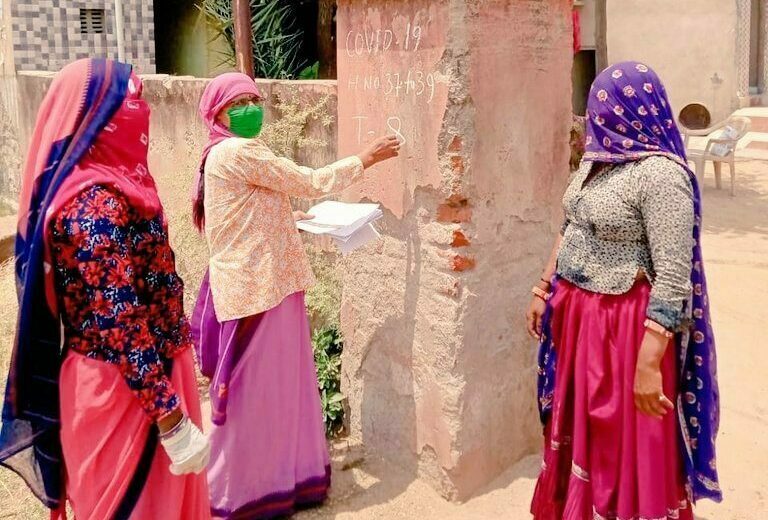Last Updated on May 13, 2023 by Neelam Singh
Anganwadis are an important part of primary health services. They mainly cater to children up to six years of age. They were started by the Indian government on October 2, 1975, as part of the Integrated Child Development Services scheme to fight child hunger and malnutrition.
The Anganwadi centres provide basic healthcare facilities in villages. They play a big role in rural healthcare since medical facilities are often not available in those areas.
According to statistics released by the Ministry of Women and Child Development, 18 lakh children in India suffer from malnutrition and most of these children are from the state of Bihar. It is because of malnutrition that the country has failed to witness any significant fall in the infant mortality rate. In 2022, India’s infant mortality rate has been reported to be 27.695 deaths per 1,000 live births, which is 3.74 per cent less than that in 2021. Last year, it was 28.771 deaths per 1,000 live births, which was again 3.61 per cent less than that in 2020. These statistics make evident the huge role that Anganwadi centres play in combating malnutrition rate in kids and helping their development.
Mixed reviews on Anganwadis
Sunita Devi, a resident of Govindpur village, located about 45 kilometres from Mujaffarpur district of Bihar, said she receives all benefits from the Anganwadi services. Through the scheme, her child gets vaccines on time as well as a nutritious diet. They get packets of one-and-a-half kilograms of rice, 250 grams of masoor daal (red lentil) and 100 grams of soybean. People like Sunita have a positive take on Anganwadis since they fulfil a lot of her needs.

However, there are also people who have a contrasting viewpoint about Anganwadis. Haseena Khatun, who lives in Baidyanathpur village of Tariyani block of Bihar’s Sheohar district is one of them. She said that she had sent a family member to register her child’s name at an Anganwadi centre but the officials there allegedly refused saying they already had 30 children enrolled and there was no scope for adding more. Asha Kumari, an Anganwadi official, said her centre gets allotment of ration for only 20 kids, seven pregnant women, seven ‘dhaatri’ who feed babies and for one malnourished child. As a result, it becomes difficult to meet the requirements of other women and children in need.
Therefore, the overall benefits of Anganwadis remain unfulfilled because of a number of factors and all parties, including the officials and beneficiaries, are responsible in some way or the other.
Many challenges that Anganwadis face
The Anganwadi system, which aims at social welfare, is plagued by a number of challenges, including:
Lack of trained personnel: Most personnel working in Anganwadis are found to be lacking in skills and their development. Most of these workers come from humble backgrounds who do not have facilities like other government employees and that often causes problems for them professionally and they fail to excel in what they do.
Lack of basic facilities: Most of the Anganwadi centres are located in rural areas where basic facilities are not always available. Absence of toilets, lack of clean drinking water and even electricity discourage people from availing the services.
Lack of educational ambience: People, who are economically well-off, prefer to send their children to private schools instead of Anganwadi centres because they feel they lack a proper educational ambience.
The future ahead
Modernisation of basic facilities is key to achieve a healthy Anganwadi system. Besides, equipping Anganwadi officials with proper skills; raising public awareness about the system; addressing the shortcomings are also essential. Anganwadi is a good initiative and taking the right steps is important to make it an overall success.
Disclaimer: Medical Science is an ever evolving field. We strive to keep this page updated. In case you notice any discrepancy in the content, please inform us at [email protected]. You can futher read our Correction Policy here. Never disregard professional medical advice or delay seeking medical treatment because of something you have read on or accessed through this website or it's social media channels. Read our Full Disclaimer Here for further information.

